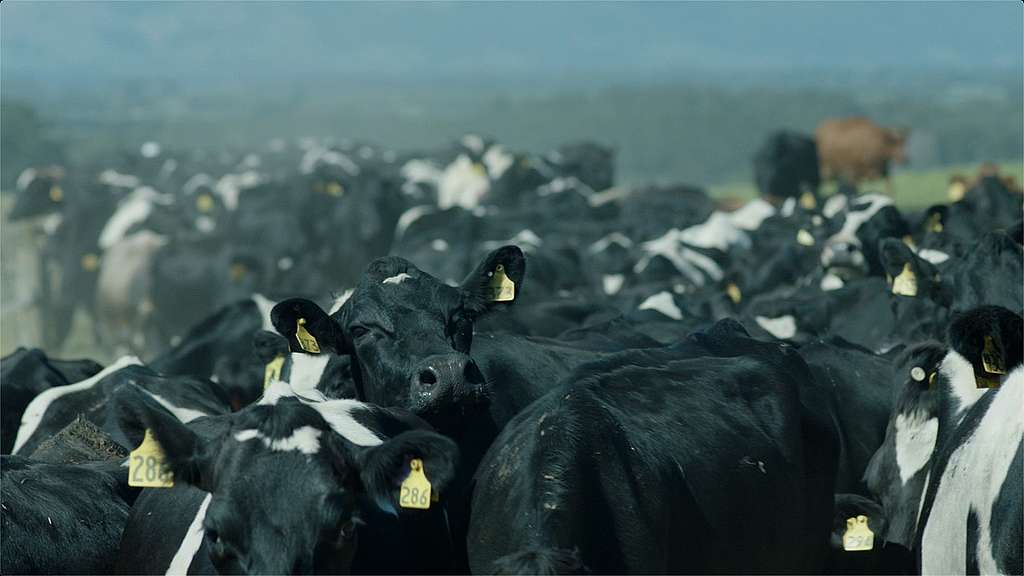Greenpeace is redoubling calls for government action to cut synthetic nitrogen fertiliser following two days of drinking water testing in Canterbury, which confirmed that nitrate contamination in drinking water is worsening.
Greenpeace tested 225 water samples at Dunsandel (123) and Woodend (102) this weekend. The two events were hosted by Greenpeace in conjunction with the New Zealand Federation of Freshwater Anglers, who undertook the testing using their spectrometer.
Greenpeace senior campaigner Steve Abel says the turnout showed the level of public awareness about nitrate contamination and its causes, and highlighted regional differences.
“Even in Canterbury’s code-red weather event people showed up in their dozens to find the state of their water. Local communities are clearly concerned about nitrate contamination, as research emerges about the health risks – from bowel cancer to premature births,” says Abel.
At Dunsandel, five water samples (4% of the total tested), measured over the World Health Organisation limit for nitrate allowed in drinking water (11.3mg/L), with the highest being 12.9 mg/L. The WHO limit is set to avoid blue baby syndrome.
74% were over 0.87mg/L, the concentration associated with increased incidence of bowel cancers in a comprehensive 2018 Danish study, and 27% over 5mg/L, which an American study showed could increase the risk of premature birth by almost half.
In Woodend there were notably fewer high readings: 31% of samples were over 0.87 mg/L, 6% over 5mg/L and none over the current World Health Organisation limit.
“Nobody should have to wonder that their tap water might be making them or their baby sick. Our findings from this weekend, particularly around Dunsandel in the Selwyn Water Zone, show nitrate groundwater contamination is getting worse. This should really raise the alarm for central and local government,” says Abel.
“One guy near Dunsandel just spent $10,000 to drill a deeper bore. His existing bore was reading over the World Health Organisation limit at 12.9mg/L. He brought us a sample from the freshly drilled bore, only to discover it was still high at 10.6mg/L. He said it was a ‘kick in the teeth’ to have spent all that money for so little improvement in the nitrate level.
“It’s outrageous that bore owners are having to foot the bill for nitrate contamination caused by big polluters like the fertiliser companies. We know nitrate contamination is much worse in areas of the country with intensive dairying. Local and central governments need to cut nitrate pollution at its source and ensure the safety of their communities’ water.
“We’re calling on the Government to lower the limit on nitrate allowed in our water; phase out synthetic nitrogen fertiliser; lower cow stocking rates and support farmers to shift to regenerative organic farming.”
Dr. Tim Chambers, Senior Research Fellow at the University of Otago who is studying human health impacts of nitrate, attended the testing at Woodend on Sunday.
“The hardest thing with our study is collating the data on nitrate in drinking water across the country. Once you have that, it’s easier to look at other conditions that might be affected by nitrate contamination,” says Dr Chambers.
“With colorectal cancer, the concern is long-term chronic exposure. That’s why the link with adverse birth outcomes is troubling, because it’s a relatively short exposure – just during that prenatal period – but the consequences can be quite severe.”
Peter Trolove from the Federation of Freshwater Anglers, who provided the spectrometer and undertook the testing, says, “Things are clearly getting worse. We have been testing surface water since August 2019 in Selwyn and getting nitrate readings far above what is toxic to aquatic ecosystems. Big irrigation is not diluting but worsening the contamination across the board. These water systems are all linked up – we know nitrate is highly toxic to river species and it’s turning out to be toxic for people too.”
ENDS

Sign on now to call on the New Zealand Govt to ban chemical nitrogen fertiliser.
